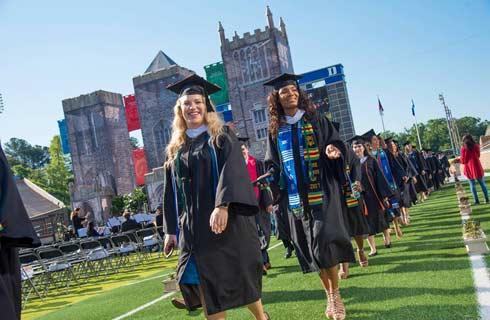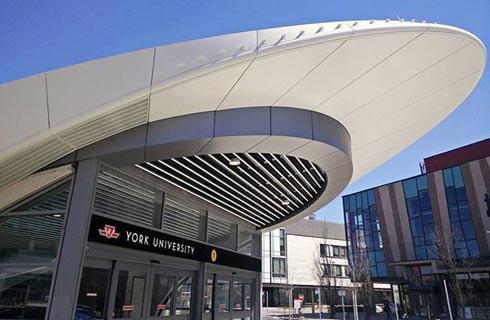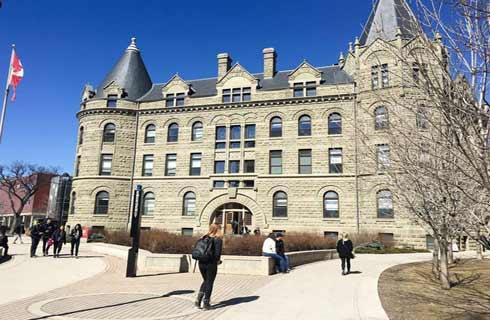传播学文学士-媒体研究
Bachelor of Arts in Communication - Media Studies

学历文凭
Bachelor Degree

专业院系
Department of Communication Studies

开学时间

课程时长

课程学费

国际学生入学条件
Academic records, certificates and diplomas must be an original or photocopy document stamped/signed by a school official, by the Ministry of Foreign Affairs, Ministry of Education or government authority. Please note that opened transcripts are not considered official. Applicants who have studied in the U.S. are required to have the institution(s) directly send their official transcript(s) to International Admissions.
Translation of document(s): All original supporting documents not in English must be accompanied by an official translation in the same format and stamped by a qualified translator. Translations by students are not acceptable.
Falsified document(s): You will be denied admissions or expelled if you send falsified academic records, bank statements, or any other supporting documents.
Failure to list all schools attended: If you do not list all schools attended on your application, you will be denied admission or refused transfer credit.
Academic Requirements:
Minimum 2.5 overall GPA
Official transcripts sealed in an envelope by your school
Official high school diploma sealed in an envelope by your school
English Language Proficiency Requirement can be met by:
TOEFL (iBT 61 or PBT 500) or IELTS (5.5 total band score). Must be valid within the last two years.
Successful completion of level 3 of CSUSB
Translation of document(s): All original supporting documents not in English must be accompanied by an official translation in the same format and stamped by a qualified translator. Translations by students are not acceptable.
Falsified document(s): You will be denied admissions or expelled if you send falsified academic records, bank statements, or any other supporting documents.
Failure to list all schools attended: If you do not list all schools attended on your application, you will be denied admission or refused transfer credit.
Academic Requirements:
Minimum 2.5 overall GPA
Official transcripts sealed in an envelope by your school
Official high school diploma sealed in an envelope by your school
English Language Proficiency Requirement can be met by:
TOEFL (iBT 61 or PBT 500) or IELTS (5.5 total band score). Must be valid within the last two years.
Successful completion of level 3 of CSUSB
IDP—雅思考试联合主办方

雅思考试总分
5.5
- 雅思总分:5.5
- 托福网考总分:61
- 托福笔试总分:500
- 其他语言考试:PTE - 43
CRICOS代码:
申请截止日期: 请与IDP联系 以获取详细信息。
课程简介
媒体研究的重点是教学生如何通过发展他们的媒体素养技能,理论和批判能力以及审美和道德敏感性来应对日益增加的媒介和信息注入环境。该研究的学术重点集中在四个主要领域:(1)批判/文化媒体研究,重点研究国家,地区和全球环境下的权力和身份,(2)数字媒体的历史,理论和产生(新闻,广播) ,视频/电视/数字电影制作),(3)媒体治理研究和(4)媒体效果。如此集中的毕业生通常会从事广播,电影和广播制作方面的职业,或在研究生课程中继续他们的学业。
The media studies concentration teaches students how to navigate an increasingly mediated and information-infused environment by developing their media literacy skills, theoretical and critical competence, as well as aesthetic and ethical sensibilities. The scholarly focus of the concentration is on four main areas: (1) Critical/cultural media studies with focus on power and identity in national, regional, and global contexts, (2) History, theory & production of digital media (journalism, radio, video/TV/digital film-making), (3) Media governance studies, and (4) Media effects. Graduates of this concentration typically pursue careers in broadcast, film and radio production, or continue their education in graduate programs.
The media studies concentration teaches students how to navigate an increasingly mediated and information-infused environment by developing their media literacy skills, theoretical and critical competence, as well as aesthetic and ethical sensibilities. The scholarly focus of the concentration is on four main areas: (1) Critical/cultural media studies with focus on power and identity in national, regional, and global contexts, (2) History, theory & production of digital media (journalism, radio, video/TV/digital film-making), (3) Media governance studies, and (4) Media effects. Graduates of this concentration typically pursue careers in broadcast, film and radio production, or continue their education in graduate programs.
相关申请
 预科
预科 奖学金
奖学金 实习机会
实习机会 在校学习
在校学习 跨境学习
跨境学习 校园授课-线上开始
校园授课-线上开始 在线/远程学习
在线/远程学习
开学时间&学费
学费信息仅供参考,请与IDP联系以获取详细信息
| 开学时间 | 时长 | 学费 | 地点 |
|---|
本校相关课程

艺术学士-计划一(视觉研究)
学历文凭
Bachelor Degree
开学日期
课程费用总额


艺术学士-计划一(视觉研究)-艺术教育/艺术治疗
学历文凭
Bachelor Degree
开学日期
课程费用总额


艺术学士-计划一(视觉研究)-艺术写作与批评
学历文凭
Bachelor Degree
开学日期
课程费用总额


艺术学士-计划一(视觉研究)-公共艺术实践
学历文凭
Bachelor Degree
开学日期
课程费用总额


艺术学士-计划II(工作室艺术)
学历文凭
Bachelor Degree
开学日期
课程费用总额


艺术学士-计划三(艺术史)
学历文凭
Bachelor Degree
开学日期
课程费用总额

其他相关课程

英语文学硕士-修辞与传播设计(课程工作)
 滑铁卢大学
滑铁卢大学学历文凭
Masters Degree
开学日期
课程费用总额


英语文学硕士-实验数字媒体
 滑铁卢大学
滑铁卢大学学历文凭
Masters Degree
开学日期
课程费用总额


媒体制作文学硕士
 多伦多都会大学
多伦多都会大学学历文凭
Masters Degree
开学日期
课程费用总额


媒体制作文学士
 多伦多都会大学
多伦多都会大学学历文凭
Bachelor Degree
开学日期
课程费用总额


安大略大学互动媒体设计大专文凭
 圣力嘉学院
圣力嘉学院学历文凭
Bachelor Degree
开学日期
课程费用总额


电子商务技术理学硕士
 渥太华大学
渥太华大学泰晤士高等教育世界大学排名:188
学历文凭
Masters Degree
开学日期
课程费用总额










 美国
美国
